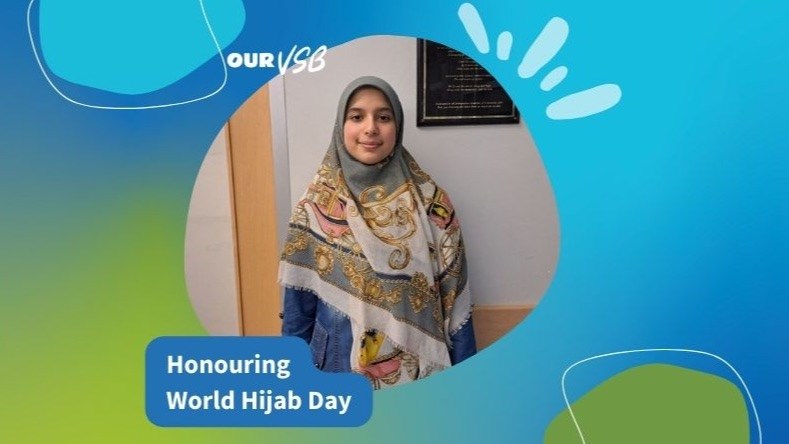Student Perspectives: Celebrating World Hijab Day 2024

Today is World Hijab Day, a day that encourages cultural understanding and religious expression. It also recognizes the millions of Muslim women who choose to wear a hijab. In honour of this day, two Grade 11 students, Rezhan Aram Abdulqadirto and Maryam Hosseini, share their stories.
Rezhan Aram Abdulqadir
My hijab 🦋
My hijab is a symbol of freedom. It allows me to have complete control over who gets to see my body. My body is mine. I have set boundaries for people. Nobody can look at me in a way I don’t want to be looked at. My hijab is my protection, it is my barrier. I feel safe wearing it.
It is a symbol of the pride I carry on a daily basis. I'm proud to be Muslim. You may not know my name, you may not know who I am as a person, but you know I'm Muslim. You know I am Muslim before even knowing my name. We Muslim women are queens, and queens wear crowns, and my hijab is my crown. I am a Muslim girl. I am valued for what I say and who I am, not for my body. My hijab is my freedom.
Maryam Hosseini
I often get asked why I wear the hijab. To answer that, I will first explain what a hijab is. Hijab means cover, but in this context, it is referring to the head scarf worn by Muslim women to cover their hair along with a fully covered body. A hijab is worn by Muslim women when they’re in the presence of men that are not part of their family.
Now that we generally know what a hijab is, I’d like to explain why I choose to wear the hijab. First and foremost, the hijab is mentioned in the Quran, the holy book of Islam, as the proper clothing for women. Secondly, I wear the hijab for modesty and humility. The last reason, and maybe the most personal reason, is that I wear it for protection and comfort. After years of wearing the hijab now, it has become a part of me, so without it, it feels as if something is missing. The sense of comfort and reassurance also comes from knowing that I can choose who sees me without the hijab and that my body is not exposed in any shape or form. It is important to address the misconceptions toward the hijab. The most harmful misconception is believing that women who choose to wear the hijab are oppressed.
A hijab is not oppressive, rather it is liberating, as it takes away the focus from a woman's physical appearance. It forces others to not judge her based on her body, but rather what she has to offer through her talent and knowledge, thus decreasing the effects of disorders such as body dysmorphia. That being said, the moment anyone is forced to do anything against their free will, it will become oppressive. Therefore, if women are forced to wear hijab, then it becomes oppressive just like how it will be oppressive to force women to take off their hijab.
--
Thank you to both students for sharing their perspectives with us!
